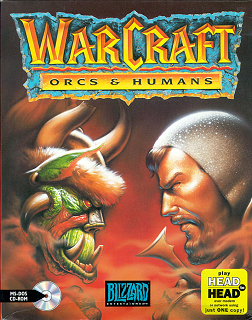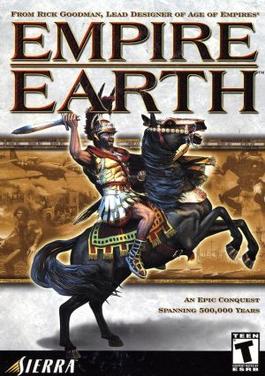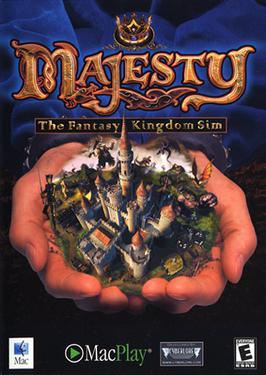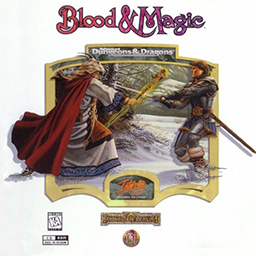
StarCraft is a real-time strategy video game developed and published by Blizzard Entertainment for Microsoft Windows. The first installment of the video game series of the same name, it was released in 1998. A Classic Mac OS version was released in 1999, and a Nintendo 64 port co-developed with Mass Media and published by Nintendo was released in 2000.

Warcraft: Orcs & Humans is a real-time strategy game (RTS) developed and published by Blizzard Entertainment, and published by Interplay Productions in Europe. It was released for MS-DOS in North America on 15 November 1994, and for Mac OS in early 1996. The MS-DOS version was re-released by Sold-Out Software in 2002.
Real-time strategy (RTS) is a subgenre of strategy video games that does not progress incrementally in turns, but allow all players to play simultaneously, in "real time". By contrast, in turn-based strategy (TBS) games, players take turns to play. The term "real-time strategy" was coined by Brett Sperry to market Dune II in the early 1990s.

Empire Earth is a real-time strategy video game developed by Stainless Steel Studios and released on November 13, 2001. It is the first game in the Empire Earth series.

Rise of Nations is a real-time strategy video game developed by Big Huge Games and published by Microsoft Game Studios in May 2003. Designed as a fusion of concepts from turn-based strategy games with the real-time strategy genre, the game's development was led by Brian Reynolds, who founded Big Huge Games following his involvement in the development of the turn-based strategy games Civilization II and Sid Meier's Alpha Centauri. In contrast to previous historical real-time strategy games, Rise of Nations is based on the entirety of history, taking place from the ancient era to the modern age, and features eighteen civilizations, playable across eight ages of world history. The game features several innovations on the real-time strategy genre, introducing novel features such as territory and attrition influenced by the turn-based strategy genre.

Medieval: Total War is a turn-based strategy and real-time tactics computer game developed by Creative Assembly and published by Activision. Set in the Middle Ages, it is the second game in the Total War series, following on from the 2000 title Shogun: Total War. Originally announced in August 2001, the game was released in North America on 21 August 2002 and in Europe on 30 August for Microsoft Windows.

4X is a subgenre of strategy-based computer and board games, and includes both turn-based and real-time strategy titles. The gameplay generally involves building an empire. Emphasis is placed upon economic and technological development, as well as a range of military and non-military routes to supremacy.
Tactical role-playing games, also known as strategy role-playing games and in Japan as simulation RPGs, are a video game genre that combines core elements of role-playing video games with those of tactical strategy video games. The formats of tactical RPGs are much like traditional tabletop role-playing games and strategy games in appearance, pacing, and rule structure. Likewise, early tabletop role-playing games are descended from skirmish wargames such as Chainmail, which were primarily concerned with combat.

Star Wars: Empire at War is a 2006 real-time strategy video game developed by Petroglyph Games and published by LucasArts for Microsoft Windows and Mac OS X. Set between Episode III and Episode IV, it focuses on the fledgling struggle between the Empire and the Rebels. It uses Petroglyph's game engine Alamo. In October 2006, an expansion titled Star Wars: Empire at War: Forces of Corruption was released. On May 31, 2014, online functionality, including network multiplayer and wireless chat, was discontinued after Glu Mobile's purchase of GameSpy and the subsequent shutdown of all game servers. As of September 1, 2017, the multiplayer has been re-enabled on the Steam version with Workshop support added.

Empire Earth II is a real-time strategy video game developed by Mad Doc Software and published by Vivendi Universal Games and their subsidiary Sierra Entertainment on April 26, 2005. It is a sequel to Empire Earth, which was developed by the now-defunct Stainless Steel Studios. The game features 15 epochs, 14 different civilizations and has three playable campaigns: a Korean, German, and American one, as well as several other playable scenarios. The game received a positive reaction, earning a 79% average rating on GameRankings.

Majesty: The Fantasy Kingdom Sim is a real-time strategy video game developed by Cyberlore Studios, and published by Hasbro Interactive under the MicroProse brand name for Windows in March 2000. The game is not a simulator; that part of the title is a witticism, a reference to the game's adherence to fantasy and fantasy role-playing game cliches. In Majesty, players assume the role of king in a fantasy realm called Ardania which features city sewers infested with giant rats, landscapes dotted with ancient evil castles, and soldiers helpless against anything bigger than a goblin. As Sovereign, the player must rely on hiring bands of wandering heroes in order to get anything done. In a major divergence from most real-time strategy games, the player does not have direct control over their units.

Blood & Magic is a real-time strategy video game released by Interplay Productions in 1996 which uses the Dungeons & Dragons license.

American Conquest is a real-time strategy video game developed by GSC Game World and published by CDV Software Entertainment. It is set between the 15th and the early 19th centuries in the American continents. There is also an expansion pack produced for American Conquest, called American Conquest: Fight Back and a gold edition, which has both the original and expansion pack bundled together. The latest installment in the series is American Conquest: Divided Nation. All three titles are available together as the American Conquest Chronicles.

Glest is a free and open-source real-time strategy computer game from 2004. Glest is set in a medieval fantasy world with two factions, and was compared with Warcraft III and the Empire Earth series. The game received positive to mixed reviews from the press, has been downloaded over two million times, and spawned several derivative continuation projects which are under active development.

Medieval II: Total War is a strategy video game developed by the since-disbanded Australian branch of The Creative Assembly and published by Sega. It was released for Microsoft Windows on 10 November 2006. Feral Interactive published versions of the game for macOS and Linux on 14 January 2016. It is the sequel to 2002's Medieval: Total War and the fourth title in the Total War series.
Real-time tactics (RTT) is a subgenre of tactical wargames played in real-time, simulating the considerations and circumstances of operational warfare and military tactics. It is differentiated from real-time strategy gameplay by the lack of classic resource micromanagement and base or unit building, as well as the greater importance of individual units and a focus on complex battlefield tactics.

Seven Kingdoms is a real-time strategy (RTS) video game developed by Trevor Chan of Enlight Software. The game enables players to compete against up to six other kingdoms allowing players to conquer opponents by defeating them in war, capturing their buildings with spies, or offering opponents money for their kingdom. The Seven Kingdoms series went on to include a sequel, Seven Kingdoms II: The Fryhtan Wars. In 2007, Enlight released a further title in the Seven Kingdoms series, Seven Kingdoms: Conquest.
In video games and other games, the passage of time must be handled in a way that players find fair and easy to understand. This is usually done in one of the two ways: real-time and turn-based.
Strategy is a major video game genre that emphasizes thinking and planning over direct instant action in order to achieve victory. Although many types of video games can contain strategic elements, as a genre, strategy games are most commonly defined as those with a primary focus on high-level strategy, logistics and resource management. They are also usually divided into two main sub-categories: turn-based and real-time, but there are also many strategy cross/sub-genres that feature additional elements such as tactics, diplomacy, economics and exploration.
Kunlun Group or their alternative name KoramGame, is a Hong Kong software developer and publisher.














